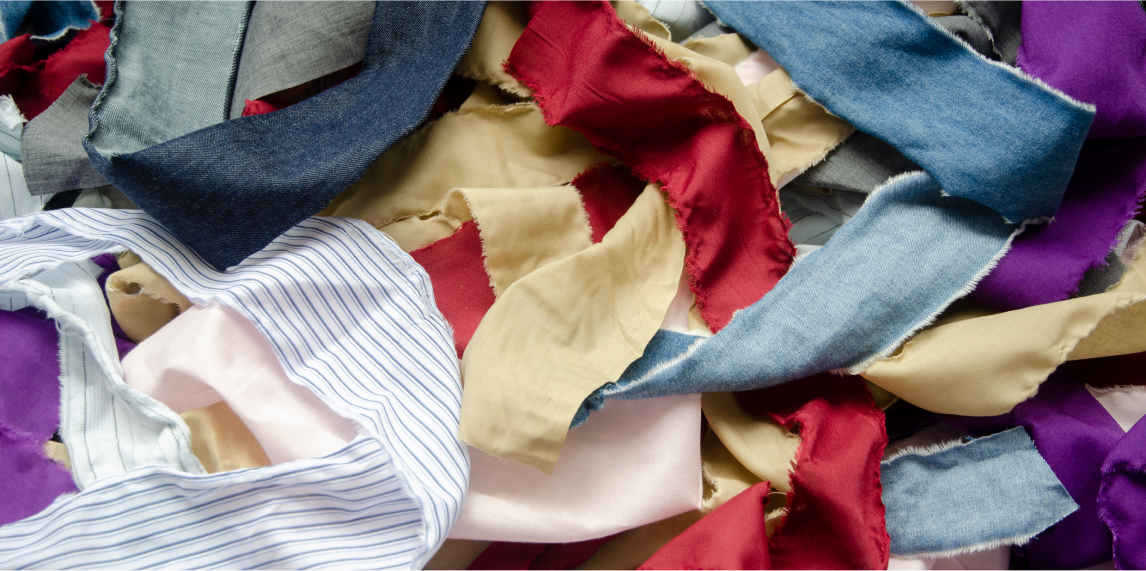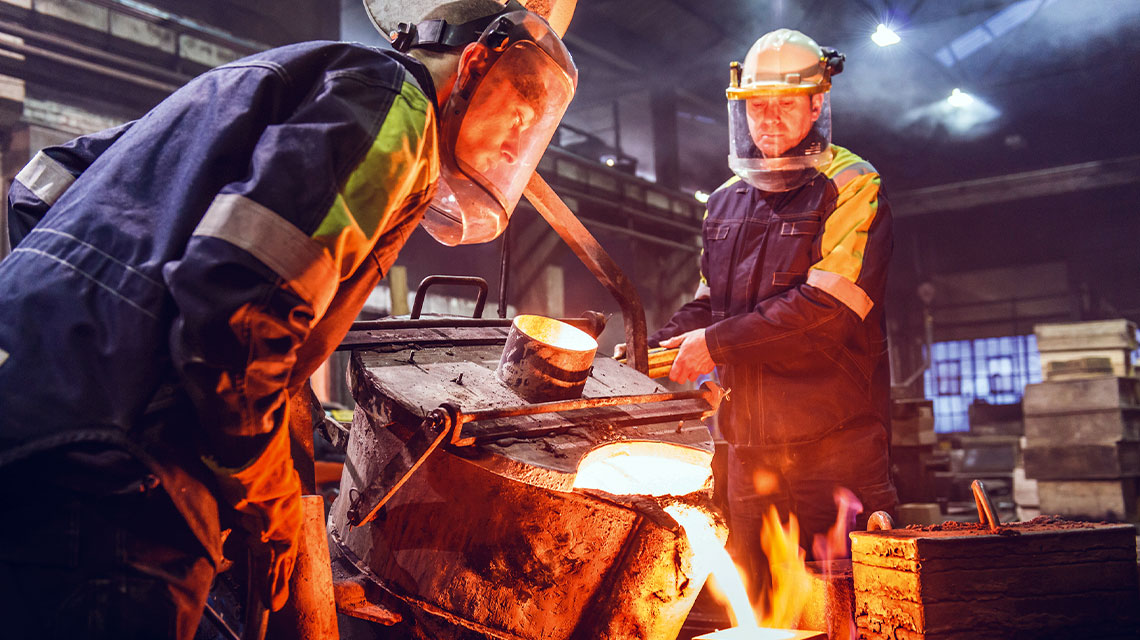One person’s trash,
another person’s treasure
For textile recycling to become as commonplace as paper recycling it will take more than fashion know-how. It requires commercial and innovative leadership, and the right partnerships too.
Making textile recycling as normal as paper recycling
Contributing to policy and building relationships to drive systemic change that accelerates industry transition to climate neutrality
Contributing to EU policy
Lenzing has been working closely with EU policymakers since the European Commission announced its Green Deal in 2020. The Deal outlines a set of proposals that will make EU climate, energy, transport and taxation policies more resilient in overcoming the challenges of climate change and environmental degradation.
Current proposals are set to impact Lenzing from a 360 degree perspective, making it all the more important that we are active in discussions that shape future policies. Sustainable innovation is at the core of our business model, and we’re able to bring an industry perspective to the table. As a contributing advisor, Lenzing has specific expertise in terms of the existing roadblocks and the collaborations needed to come up with programs to concretely reduce emissions. Our aim is to help policymakers outline an action plan that will truly accelerate the textile industry’s transition to climate neutrality.
Taking action towards systemic change
The complexity of the global sustainability challenges we face call for a collaborative approach when designing systemic solutions. Partnership is therefore critical if we are to make a meaningful contribution while achieving our target of net-zero emissions by 2050.
Taking guidance from the United Nations Sustainable Development Goal 17, Partnerships for the Goals, we continue to engage with, and learn from, a variety of stakeholders and business partners. In 2022, Lenzing made great strides towards enhanced collaborations and partnerships that will enable us to contribute towards positive systemic change.
We became one of 15,000 companies that form the UN Global Compact, an initiative for responsible corporate governance. We also joined Together for Sustainability, the chemical industry’s sustainable supply chain initiative that comprises 37 member companies. Further to this, we became a partner company of CISUTAC (Circular and Sustainable Textile and Clothing) – an EU-funded consortium that aims to remove barriers to circularity in the textile industry.
Taking action for textile recycling
With 140,000 companies in its number, the European textile and clothing industry faces a huge task to prepare for legislation that mandates the separation of textile waste collection by the end of 2024. Lenzing has joined the Recycling Hubs (ReHubs) initiative to help advance circularity within the industry. Current ReHubs projects focus on scaling up the collecting, sorting and processing of pre-consumer and post-consumer materials.
Preparing for mandatory textile collection requires huge investment in infrastructure. Lenzing is therefore one of 20 companies working together to clarify what’s needed to address the bottlenecks that currently hinder textile collection, fiber sorting and new technologies.
Further to this, Lenzing became a partner company of CISUTAC (Circular and Sustainable Textile and Clothing). This EU-funded consortium aims to remove barriers to circularity in the textile industry and Lenzing is contributing on the topic of cellulosic fiber recycling.
600
Million
Licensed products on the market – up from 90 million five years ago
Commercial leadership for a cleaner textile industry
Scaling up technologies and product innovations enables a future where sustainable fibers are an everyday choice
30 years of TENCEL™
TENCEL™ celebrated three decades of innovation in 2022. Brand awareness has almost doubled in the past five years, reaching 37 percent in 2022, making TENCEL™ the number two ingredient brand in the market behind Lycra [source: Nielsen brand tracking] – making it number one for sustainability. Further to this, certified carbon-neutral TENCEL™ fibers have been on the market since 2021, enabling our supply chain partners to adopt more sustainable practices. Choosing carbon-neutral fibers over non-sustainable brands helps them to reduce their Scope 3 emissions from raw material production, as well as move towards their Scope 3 science-based targets.
600 million products, 300 partner brands
2022 was a year of major milestones for our branded fibers, with 600 million licensed products on the market – up from 90 million five years ago. Products range from carpets to coats to hygiene wipes, and all of them contain either TENCEL™, VEOCEL™ or LENZING™ ECOVERO™ fibers. This is a huge achievement within a challenging market.
We also continue to engage brands, retailers and manufacturers in the creation of a circular economy, and now have a record number of licences for products containing our fibers. These span a variety of applications across both the textile and nonwoven markets, and the majority of them are co-branded – which illustrates the trust that value chain partners place in our trademarks. Our collaborations vary across a range of co-branded products, including legwear, outdoor apparel and personal hygiene.
US debut for carbon neutral VEOCEL™
Carbon neutral VEOCEL™ branded lyocell fibers are in production for the first time at our site in Mobile, Alabama. This will enable us to expand our US customer portfolio while moving towards our target of net-zero emissions (Scope 1, 2 and 3) by 2050.
Carbon neutral VEOCEL™ branded fibers offer a 30 percent lower carbon footprint than the group average for lyocell, which will further reduce the site’s climate impact. Proximity to regional customers is also important if we are to continue lowering emissions, making this a huge milestone on the road to sustainability and decarbonization.
Collaboration enhances circular business model
Creative ideas, deep research, academic expertise and dedicated teamwork deliver solutions to advance circularity
Partnerships enable progress
Our collaboration with Swedish pulp producer Södra continues to develop the innovative solutions needed to pull thousands of tons of textile waste out of landfill by 2025. Södra’s OnceMore™ dissolving pulp technology, which contains recycled material, currently separates cotton and polyester contained in poly-cotton blends. The cotton is then added to wood-derived pulp to create new textiles.
Partnering with Södra allows us to combine our respective expertise in order to develop a recycling process for post-consumer textiles – our goal being to bring this model to the market at scale. As we work together creatively to overcome barriers to progression, relationships based on openness, transparency and trust have taken shape, especially in the area of research and development.
Our aim to produce as much fiber from recycled content as possible is also supported by a new supply agreement signed with Renewcell in December 2022. The Swedish textile-to-textile recycling company will provide Lenzing with up to 100,000 tonnes of 100 percent recycled Circulose® pulp over the next five years.
Lenzing has formed and consolidated many new partnerships in 2022, and these will be crucial to the future of the business and the industry. Our collaborations will make a significant contribution towards advancing circularity throughout 2023 and beyond.
Research for responsible fibers
Our commitment to environmental and social responsibility extends beyond the fibers that we produce. We also consider the impact of the end products that contain our fibers – especially the impact on consumers using those products. Research teams at Lenzing therefore focus on developing academic collaborations with leading scientists, which allow us to reach well beyond fiber technology.
A highlight of 2022 was working with a biomedical expert in clinical medicine and microbiology at the University Claude Bernard Lyon in France. The study generated specific insights into the correlation between materials used in intravaginal menstrual products and causes of bacteria induced toxic shock syndrome. Results confirmed that material used in tampons or menstrual cups does not increase risk as long as products are used properly. Our findings will be published in 2023. This will provide manufacturers of hygiene products with essential information and build further trust in the Lenzing brand across the supply chain.
New ideas for sustainable innovation
Lenzing’s collaboration with universities also helps us to identify and recruit bright young research minds. They bring fresh insight into the emerging and future trends reshaping the sustainability landscape – which, in turn, facilitates innovation, creative solutions and further progress towards our science-based targets.
In 2022, we launched the Lenzing Young Scientist Award aimed at young designers, students and scientists working on creative solutions to address the environmental challenges of the textile industry. Lenzing also sponsors the Europe Young Scientist Life Cycle Assessment Award, which recognizes those making a significant contribution to the development and implementation of the life cycle assessment process. This promotes research and innovations in the field of sustainability evaluations.


